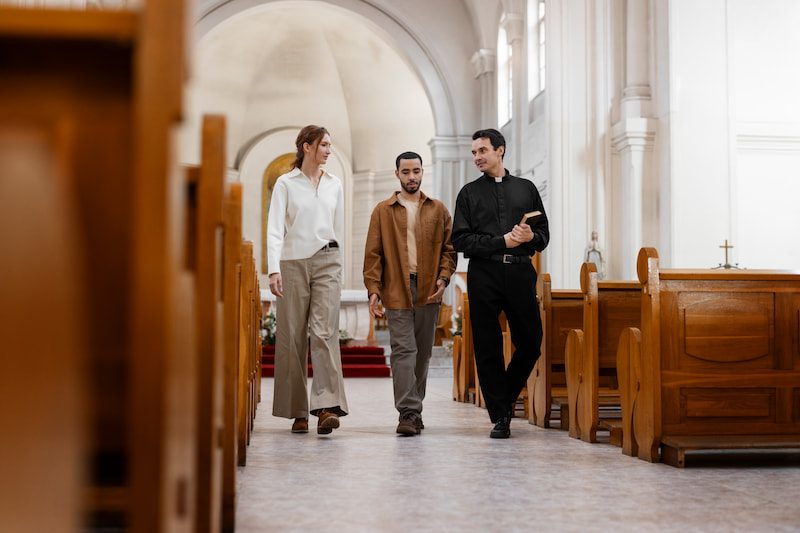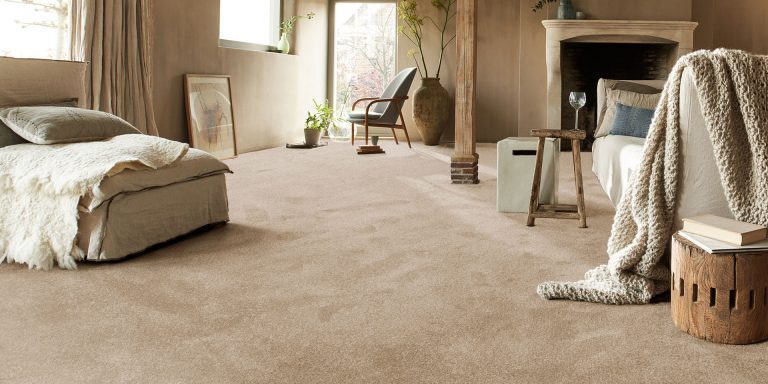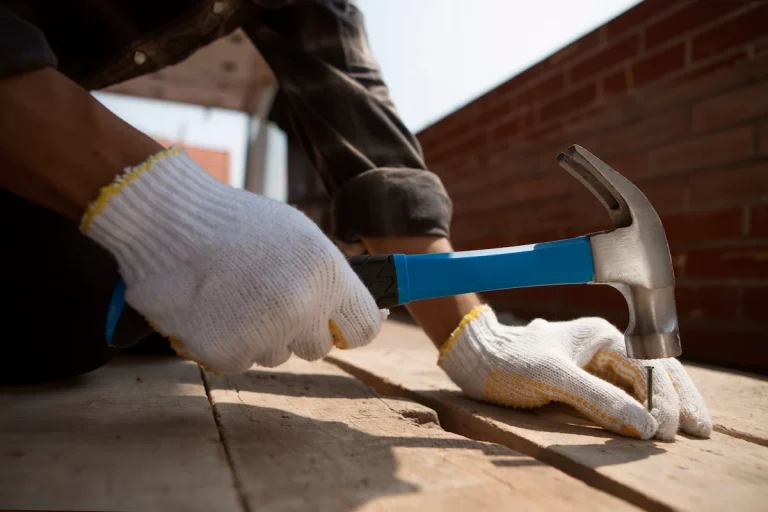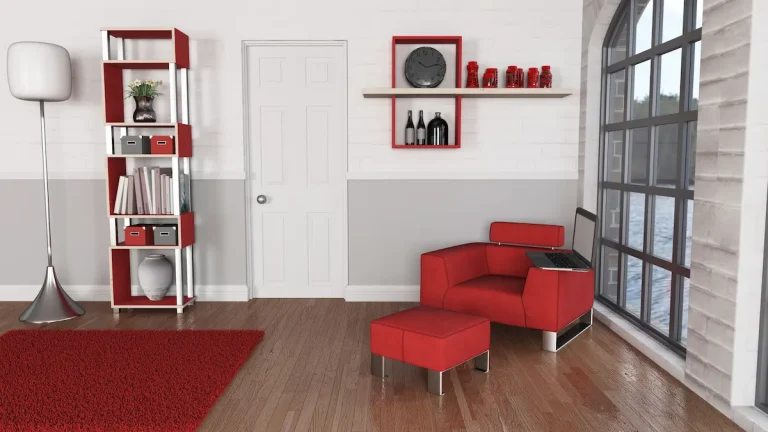Selecting the appropriate church flooring for a church fellowship hall extends beyond mere aesthetic considerations; it involves the creation of an inviting environment capable of accommodating the diverse activities and gatherings of the community. Durability, maintenance, floor aesthetics, and safety features are all critical factors that significantly influence this decision.
This article examines the importance of choosing the right flooring options, the advantages and disadvantages of various materials, and essential considerations for custom installation. We invite you to explore this guide to assist you in making an informed decision for your church’s fellowship hall.
Why Is Choosing the Right Flooring Important for a Church Fellowship Hall?
Choosing the right flooring for a church fellowship hall is crucial as it directly impacts the functionality, appearance, and overall user experience of the space.
The right church flooring must not only align with the aesthetic vision of the hall but also withstand the daily wear and tear associated with high-traffic areas, community events, and various activities.
Durable flooring options such as carpet tiles, VCT flooring, and luxury vinyl tiles are essential for ensuring that the hall remains a welcome and practical environment for all congregants.
Factors to Consider When Choosing Flooring for a Church Fellowship Hall
When selecting flooring for a church fellowship hall, several critical factors must be considered to ensure that it meets the community’s needs effectively and sustainably.
Key factors include:
- Durability (e.g., VCT, LVT)
- Maintenance requirements
- Overall aesthetics (e.g., luxury vinyl tile, laminate flooring)
- Cost considerations
- Essential safety features that contribute to a welcoming and functional environment.
Each of these elements plays a significant role in determining the best flooring solutions for high-traffic areas, accommodating community events, and supporting the diverse activities of the congregation.
Durability
Durability is one of the most crucial aspects to consider when selecting flooring for a church fellowship hall, especially given the high traffic areas often experienced during community events and gatherings, where the flooring must withstand constant use by various groups of people and be able to endure spills, foot traffic, and the occasional heavy piece of furniture being moved around.
This makes it essential to choose materials that not only look appealing but are also engineered to last. For example, VCT flooring, or vinyl composition tile, is renowned for its resilience and ability to handle heavy wear while being quite affordable. Additionally, luxury vinyl tile offers both aesthetic versatility and unmatched durability, making it a superb option for a setting that values both function and beauty.
By investing in these durable flooring options, churches can significantly reduce maintenance costs over time. With longer lifespans and resistance to scratches and stains, these materials are practical choices for environments where longevity and easy upkeep are paramount. This proactive approach not only saves money but also ensures that the fellowship hall remains welcoming and functional for years to come.
- Long-lasting performance
- Reduced maintenance efforts
- Cost-effective over time
Maintenance and Cleaning
Maintaining cleanliness and ease of maintenance is essential for the flooring in a church fellowship hall to ensure a welcoming environment for the congregation and guests. In a space that sees frequent gatherings and diverse activities, such as community meals, events, and meetings, the choice of flooring can significantly impact overall upkeep.
Selecting low-maintenance flooring options not only simplifies the cleaning process but also enhances the durability needed to withstand high foot traffic. For instance, vinyl plank flooring is not only water-resistant but also requires minimal effort to clean, making it a popular choice. Similarly, laminate flooring offers a scratch-resistant surface that holds up well against spills and dirt, simply needing a quick wipe to shine again.
- Cleaning Requirements: For vinyl, a damp mop and mild detergent are usually sufficient.
- Best Practices: Regular sweeping or vacuuming can prevent damage from dirt build-up.
- Other Solutions: Consider tile flooring, which is inherently stain-resistant and allows for easy grout cleaning.
Ultimately, when selecting flooring materials, it is crucial to prioritise not only aesthetics but also functionality to create a welcoming and practical environment.
Aesthetics
Aesthetics play a significant role in the overall appeal of a church fellowship hall, as the flooring choice can contribute to the ambience and design flexibility of the space. The flooring not only enhances visual appeal but also impacts the hall’s functionality, offering numerous design opportunities to create a welcoming environment for various activities.
Choosing the right material can significantly influence how the space feels. For instance, laminate flooring provides a versatile look that can mimic hardwood, giving an inviting and warm aesthetic to gatherings. Its durability makes it suitable for high-traffic areas, ensuring it stands the test of time.
On the other hand, luxury vinyl tile offers a vast array of designs and textures, allowing for creative expressions that can match different themes, be it rustic, contemporary, or traditional. By thoughtfully selecting flooring, the fellowship hall can effectively reflect the church’s values and missions, enhancing the overall experience for its congregation.
- Durability: Laminate is resilient against wear.
- Design Variety: Luxury vinyl tiles come in countless patterns.
- Comfort: Soft underfoot options provide a cosy ambience.
Cost
The cost of flooring options is a crucial consideration when selecting the best materials for a church fellowship hall, as it directly affects both the budget and the long-term financial sustainability of the church.
When evaluating different flooring materials, churches must consider various pricing ranges that reflect not only the initial installation costs but also the expenses associated with long-term maintenance. Factors such as durability and potential for wear and tear can significantly impact overall costs.
For instance, while high-end hardwood might seem appealing at first glance, its upkeep can be greater than that of laminate or luxury vinyl options, which often offer similar aesthetics at a more affordable price point. Custom installation can enhance the overall appearance but may lead to increased labour costs, making it vital to strike a balance between elegance and practicality. For example:
- Vinyl flooring can range from £2 to £5 per square foot, while hardwood may cost £5 to £10 and upwards.
- Long-term maintenance for vinyl is typically lower, saving money over time.
By taking these factors into account, church leaders can ensure that they make a well-informed decision that aligns with their community’s needs and budget.
Safety
Safety features in flooring are paramount, particularly in a church fellowship hall where diverse groups gather, necessitating flooring solutions that can minimise accidents and enhance overall safety. This is especially true in areas frequented by children, the elderly, and individuals with mobility challenges. Ensuring a safe environment is crucial for fostering community interactions and participation.
To achieve this level of safety, incorporating features like slip resistance and cushioning is essential. Slip-resistant surfaces help prevent falls, while cushioned flooring can ease the impact of accidents when they do occur.
Here are some flooring options that prioritize safety:
- Vinyl Flooring: Known for its durability and slip-resistant options, vinyl, including Vinyl Plank and VCT flooring, is a great choice for high-traffic areas.
- Carpet Tiles: These can provide a softer surface and cushioning, reducing the risk of injury. They are also easy to replace if damaged.
- Rubber Flooring: Ideal for spaces like fellowship halls, rubber offers excellent slip resistance and is comfortable underfoot, making it ideal for events with prolonged standing.
Types of Flooring Options for a Church Fellowship Hall
There are numerous flooring options available for church fellowship halls, each offering unique benefits that cater to the diverse needs of the congregation and the various activities taking place in the space.
Choices such as carpet, hardwood, vinyl, laminate, and tile can impact durability, aesthetics, and maintenance requirements, allowing churches to select flooring that best aligns with their specific objectives for the fellowship hall.
Understanding the characteristics of each type can aid in making an informed decision that meets both functional and aesthetic needs, addressing specific flooring needs of congregations like Latter Day Saints and beyond.
Carpet
Carpet is a popular flooring option for church fellowship halls, offering comfort and warmth while also providing an effective acoustic barrier for gatherings and events.
Along with its aesthetic appeal, the ability of carpet to absorb sound helps create an inviting atmosphere, making conversations easier without the constant distraction of echoes. The inviting texture encourages participants to relax and enjoy their time in the space.
Those considering this flooring choice can find an extensive range of styles, patterns, and colours, ensuring that the decor aligns with the overall theme of the church. It is important to keep in mind that maintenance is key in high traffic areas; options that are both durable and easy to clean will contribute to the longevity of the flooring.
- Sound absorption for quieter gatherings
- Variety of styles to suit any decor
- Comfort underfoot for extended activities
- Durability against foot traffic
- Ease of maintenance for lasting appeal
Hardwood
Hardwood flooring presents a classic and elegant choice for church fellowship halls, known for its timeless beauty and durability.
Its sophisticated appearance adds warmth and character, ultimately creating a welcoming atmosphere that encourages community interaction. When considering this flooring option, individuals should take into account its low maintenance requirements, as regular sweeping and occasional refinishing can keep it looking new for years. The potential costs involved in installation can vary based on the type of hardwood chosen and the size of the hall.
- The investment in quality hardwood flooring can significantly enhance the aesthetic appeal.
- Notably, its longevity and enhanced durability make it a cost-effective choice over time
- Ultimately, the combination of beauty and durability makes hardwood a favourable option.
By prioritising these factors, decision-makers can ensure they select a flooring solution that aligns with both budget and style preferences.
Vinyl
Vinyl flooring, including options like luxury vinyl tile (LVT), vinyl composition tiles (VCT), offers an affordable and versatile solution for church fellowship halls, providing a stylish yet practical design that can enhance any communal space while remaining budget-friendly.
Not only does vinyl flooring come at a fraction of the cost compared to traditional materials, but it also boasts an array of designs, colours, and textures, allowing for a customised look that can match any decor theme. The ease of installation further adds to its appeal, making it a favourite for quick renovations and upgrades.
- Affordability: Vinyl flooring is often priced lower than hardwood or tiles, providing substantial savings.
- Design Variety: With countless styles available, including options that mimic natural stone and wood, it’s easy to find a look that fits.
- Maintenance: Its water-resistant nature simplifies cleaning — sweeping and mopping is usually sufficient.
To understand the differences between LVT and VCT, consider that LVT is typically thicker and offers more durability and comfort underfoot, whereas VCT is known for its superior resilience but may require more maintenance to keep it looking pristine.
Laminate
Laminate flooring is a cost-effective and stylish option for church fellowship halls, providing the appearance of hardwood or tiles at a fraction of the cost.
This versatile flooring solution comes in a stunning array of designs, colours, and textures, making it easy to find an option that complements any decor. Not only does this laminate flooring mimic the aesthetics of natural wood and stone, but its innovative production also ensures exceptional durability, making it resistant to scratches and wear, ideal for high-traffic areas such as fellowship halls.
Installation is straightforward, often requiring no glue or nails, so the transformation can take place quickly with minimal disruption.
Maintaining laminate flooring is a breeze; regular sweeping and occasional damp mopping are usually all that’s needed to keep it looking its best. This makes it a practical choice for facilities frequently used for gatherings and events.
Tile
Tile flooring, particularly ceramic, offers a durable and water-resistant option for church fellowship halls, ideal for areas that may experience spills or high moisture.
Tile flooring is not only impressively water-resistant but also exceptionally durable, making it an ideal choice for high-traffic areas. This type of flooring is not only versatile in design, allowing for various colours, patterns, and textures to complement any décor, but it also proves to be incredibly easy to clean.
Maintenance is simplified, as regular sweeping and occasional mopping suffice to keep tiles looking their best. The non-porous surface minimises stains and retains its aesthetics even in bustling environments.
- Durability: Resistant to wear and tear.
- Design Options: A wide range to fit any style.
- Cleaning: Simple and efficient maintenance.
- High Traffic Suitability: Ideal for busy areas, even in challenging conditions like those experienced during Hurricane Harvey.
Pros and Cons of Each Flooring Option
Each flooring option for church fellowship halls comes with its own advantages and disadvantages, impacting the choice significantly based on the specific needs of the community and the activities planned.
Factors to Consider When Installing Flooring in a Church Fellowship Hall
When installing flooring in a church fellowship hall, several key factors must be considered, including the installation process, accessibility for all members of the congregation, and noise control to ensure a pleasant environment during events and gatherings.
Noise Control
Implementing effective noise control measures is vital for ensuring that church fellowship halls remain conducive to fellowship and community events.
When noise reverberates in these spaces, it can detract from the overall experience, making conversations difficult and dampening the warmth of gathering. The right flooring materials play a significant role in minimising sound disruption, acting as an acoustic barrier that absorbs unwanted noise. Options such as carpet tiles and cork flooring excel in sound absorption, providing a soft surface that reduces echoes and enhances acoustics.
The following materials are particularly noteworthy:
- Carpet: Dense, plush carpet offers excellent sound insulation, making it ideal for fellowship gatherings.
- Cork: Naturally porous, cork helps muffle sounds due to its cellular structure, making it a sustainable choice.
- Rubber flooring: Often used in multipurpose rooms, rubber surfaces are resilient and sound-dampening.
Choosing the right flooring not only enhances the ambience of a fellowship hall but also fosters an environment where community members can connect without distraction.
Accessibility
Ensuring accessibility in flooring choices is crucial, particularly in a church fellowship hall where members of the congregation may have varying mobility needs.
Making the right flooring selections can significantly impact everyone’s experience, ensuring that all congregants feel included and safe. For instance, utilising materials with low thresholds can facilitate easy movement for those using wheelchairs or walkers, minimising the risk of tripping.
Likewise, prioritising slip-resistant surfaces is vital in preventing accidents, especially in high-traffic areas where spills might occur.
- Consider options like vinyl or rubber flooring, which combine durability with comfort.
- Incorporate design elements such as contrasting colours to delineate pathways effectively.
- Consult with procurement specialists to evaluate materials that best suit the space, addressing accessibility needs and incorporating innovations from companies.
Ultimately, an inclusive environment enhances participation and fosters a sense of community among all members.
Installation Process
The installation process for flooring in church fellowship halls, such as those of the Catholic church or Presbyterian denominations, can vary significantly based on the selected flooring options and may involve bespoke installation to meet specific needs.
When considering different flooring types, such as carpet, vinyl, hardwood, or VCT (vinyl composition tiles), the expertise of professional installers becomes essential. Typically, each flooring type has its own unique installation requirements. For example, carpet installations often require precise measurements and underlay preparation, while hardwood demands careful acclimatisation and specific nailing or gluing techniques.
- Professionals can navigate potential challenges like uneven subfloors, necessary repairs, or moisture issues, ensuring a smooth installation process using products like LVT (luxury vinyl tile).
- Regarding bespoke installations, detailed planning and collaboration with the installation team are vital to ensure durability and aesthetic appeal.
This preparation allows for a seamless integration of the flooring into the overall design of the space, meeting both functional and visual expectations.
Conclusion: Choosing the Best Flooring for Your Church Fellowship Hall
Choosing the best flooring for a church fellowship hall involves a careful assessment of various factors, including durability, aesthetics, maintenance, and safety features, ensuring that the selected flooring aligns with the church’s mission and community goals.
It is crucial to consider how the flooring will support the multifaceted activities that take place within this vital space, from community gatherings to educational programmes. By prioritising the congregation’s specific needs, one can select an option that not only complements the overall design but also withstands the wear and tear of daily use.
- Evaluating Flooring Types: Various materials, such as carpet, vinyl, hardwood, or vinyl plank, each come with their unique pros and cons, offering choices that align with specific needs.
- Maintenance Requirements: Understanding the cleaning and upkeep needed can significantly influence long-term satisfaction.
- Safety Considerations: Ensuring slip-resistance and comfort underfoot is essential for the varying age groups within the church community.
Ultimately, by engaging in a thoughtful evaluation of available options, readers can make informed decisions that will resonate with the church’s mission for years to come.

































